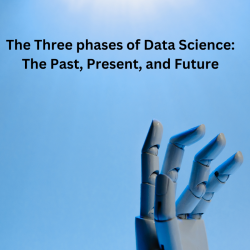Integrating Innovation and Responsibility in Big Data Ethics


Introduction to Big Data
Welcome to the world of Big Data: a powerful tool for managers, researchers, and analysts alike. To understand what Big Data is, it’s important to define it. Big Data is essentially any large amount of information that can be collected and analyzed for patterns. This data can be used to track customer behavior, uncover insights into current products or services, make predictions about future trends and much more.
There are many benefits associated with utilizing Big Data that make it an extremely valuable tool. On the business side of things, using Big Data can help companies better understand their customers as well as gain a competitive advantage by being able to respond quickly to changing market demands. For inventors and innovators, having access to real time data will allow them to develop products or services based on current trends that customers are looking for.
As powerful as Big Data is, there are also ethical implications that come along with its usage which must be taken into consideration when collecting data from customers or other sources. It is essential that organizations are transparent in how they obtain user information and adhere strictly to regulations set out by governing bodies such as GDPR if collecting from EU citizens (or other international equivalents). Companies should also ensure they have strong security procedures in place so customer privacy remains intact while using their products or services online.
Challenges of Big Data Ethics
The primary challenge is that of data privacy:
Companies collecting data must take responsibility for ensuring that the information is safeguarded from potential misuse. This involves implementing protective measures such as encryption, authentication, access control, and anonymization of data. In addition to this, strong privacy policies should be put in place to clearly define how personal information is collected and used.
Another challenge is that of data security:
Companies must ensure that their systems are secure from potential cyberattacks and breaches by implementing comprehensive security measures such as firewalls, encryption protocols, and other protective measures to protect confidential information from unauthorized access or misuse.
Moreover, there is a lack of regulation regarding big data ethics which creates a concern over the misuse of collected data. Governments need to create clear regulations governing the use of big data so that companies have a greater understanding of their responsibilities in collecting customer information and using it ethically.
Adapting Law and Regulations for Big Data
The use of big data has been praised for its ability to drive efficiency in a variety of industries, but the ethical implications of handling this sensitive information can’t be ignored. It’s essential to create a balance between data usage benefits and protecting citizens from potential harm that can arise from the misuse of big data insights. In order to achieve this, we must understand both the existing legal and regulatory frameworks that govern Big Data and how we can adapt these laws to best protect citizens in our modern digital world.
At the intersection of innovation and responsibility lies ethical Big Data usage. Laws and regulations must be put in place to ensure that personal data is being used responsibly, such as heightened protections for companies when storing or using sensitive user information like credit card numbers or health records. Additionally, organizations must be held accountable for any misused insights they come across by following rigorous protocols and guidelines for collecting, using, disclosing, sharing, and disposing of personal data.
As Artificial Intelligence (AI) becomes more mainstream, it is necessary to protect people from the potential harm caused by misusing AI algorithms and other big data insights. To do so requires an increased level of oversight in the development process along with a code of conduct that outlines standards for ethical use. It is also important to train personnel working on AI projects so they are aware of how their work impacts people’s lives.
Social Responsibility and Accountability in Big Data
At its core, social responsibility in the context of big data requires organizations to consider two key elements: transparency and privacy. Data collection should be done responsibly and ethically, with an emphasis on protecting data security by limiting access to authorized personnel only. Additionally, transparency in the ways data is collected, shared, or used should be made clear to all internal and external stakeholders so that there is no room for doubt about what is expected from them.
When it comes to making sure that innovation and responsibility go hand in hand when dealing with big data, organizations need to take a holistic approach which includes having a governance framework in place. A well thought out plan will not only help ensure compliance but also provide guidance for how data can be used ethically for decision making purposes.
Finally, organizations need to embrace innovative approaches when dealing with big data ethics by exploring new technologies like artificial intelligence (AI) or machine learning (ML). AI solutions present a unique opportunity for businesses as they can minimize human bias while still providing accurate insights on collected datasets; ML tools help identify patterns and trends quickly without sacrificing accuracy or detail.
Technology-Centered Solutions to Ethical Problems
One way to start integrating innovation and responsibility is to consider the impact of big data on people’s lives. It is not enough to simply consider the efficiency or cost effectiveness of a particular solution. We must remember that ethical considerations need to be taken into account when making decisions regarding the use of such data. By looking at how individuals may be impacted by our policies, we can develop better solutions.
Another way to integrate innovation and responsibility is through transparency and disclosure policies. Companies should be open about their use of data and how it is being used in decision making processes. Disclosing what information is collected, why it is being collected, what will be done with it, who will have access to it can increase accountability and help ensure that ethical standards are met.
Finally, organizations should ensure that their employees understand ethical principles related to big data practices. Technology Driven policies should strike a balance between freedom and responsibility in order for them to work effectively while still respecting an individual’s rights. Education about ethical considerations related to technology can help reduce potential risks associated with its application and drive more informed decision making processes.
Innovation & Governance of Big Data Practices Section: The Importance of Interdisciplinary Collaboration
In the age of digital transformation, big data practices have become increasingly important. As organizations look to propel data driven insights to drive better decisions, the need for collaboration across different disciplines has never been more important. By integrating innovation and responsibility into big data ethics, companies create a holistic approach to governance that is beneficial for all stakeholders.
Innovation and responsibility must be front of mind when navigating big data ethics. To achieve this, experts must look at how technology can be leveraged in a responsible manner. Businesses should look to create a unified vision for their goals that respects the interests of all stakeholders while creating new opportunities through technological advancement. This requires an understanding of how data is used across departments within an organization as well as any external obligations related to customer privacy and data security regulations that must be upheld.
When it comes to developing governance strategies around big data practices, organizations should remember that a holistic approach is required. This means focusing on combining legal and technology expertise in order to create efficient, reliable systems that protect all stakeholder interests including employee rights and customer protection measures while taking advantage of technological innovations in order to gain competitive advantage.






Ingen kommentarer endnu